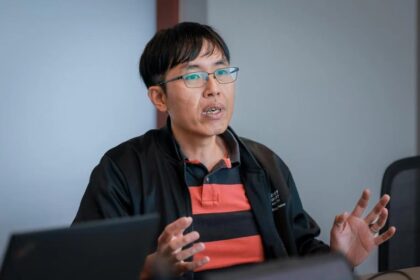Why a crop fungus landed a scientist in a Michigan courtroom
A federal judge in Detroit sentenced Chinese researcher Yunqing Jian to time served and ordered her removal from the United States after she pleaded guilty to smuggling biological materials and making false statements. Jian, 33, had spent about five months in custody. The judge described the matter as a very strange case involving an accomplished scientist. The sentence clears the way for her release to immigration custody and deportation.
The case centered on samples of Fusarium graminearum, a fungus that attacks cereal crops including wheat, barley, maize and rice. Jian worked as a temporary researcher at a University of Michigan laboratory. Prosecutors alleged that she and her boyfriend, Zunyong Liu, coordinated bringing small quantities of the fungus into the country to study at the campus lab. The university did not possess the federal permits required to import or handle foreign strains of the organism.
Prosecutors argued the conduct risked agricultural harm and asked for a two year sentence, well above the guideline range that topped out at six months. The court instead imposed a five month term, which Jian had already served. The government dismissed a conspiracy count in exchange for Jian’s guilty plea to smuggling and false statements. Liu is in China and not expected to return to the United States for court proceedings.
Jian apologized, explaining in a letter to the court that she felt pressure to produce research results and did not intend harm. The fungi strains never moved beyond the laboratory setting and authorities did not claim she planned to release them into the environment. The Justice Department and immigration authorities will now remove Jian from the country.
A strange case with high stakes claims
Officials framed the incident as a matter of public safety and national security. The criminal complaint asserted that scientific literature has described Fusarium graminearum as a potential agroterrorism weapon, a point several plant disease experts later questioned in court filings and interviews.
United States Attorney Jerome F. Gorgon Jr, whose office brought the case, said the conduct was a serious concern for the country’s food supply and national security.
“The alleged actions of these Chinese nationals, including a loyal member of the Chinese Communist Party, are of the gravest national security concerns. These two aliens have been charged with smuggling a fungus that has been described as a ‘potential agroterrorism weapon’ into the heartland of America, where they apparently intended to use a University of Michigan laboratory to further their scheme.”
Cheyvoryea Gibson, special agent in charge of the FBI’s Detroit Field Office, said the investigation halted activities that posed a threat to public safety.
“The individuals exploited their access to laboratory facilities at a local university to engage in the smuggling of biological pathogens, posing an imminent threat to public safety.”
While the government characterized the conduct in severe terms, the judge’s sentence reflected the limited scope of the activity uncovered in the lab setting and the absence of proof that Jian intended to harm agriculture or people.
What is Fusarium graminearum and why it matters
Fusarium graminearum is a plant pathogen that causes a disease known as head blight in cereals, often seen in wheat and barley fields after wet weather. Infected grain can carry toxins such as deoxynivalenol, commonly called vomitoxin, which can cause vomiting and other health problems in livestock and people if contaminated grain is consumed. Because of these risks, the pathogen is closely watched by farmers, grain buyers and regulators. When weather favors the fungus, growers confront yield losses and quality downgrades that can cost millions of dollars across a region.
The organism is not new to the United States. It occurs naturally in many grain growing states and has been part of plant disease management for more than a century. Even so, foreign strains introduced without authorization can create problems. Permit rules exist to control movement of biological agents, ensure safe handling and prevent accidental spread. The U.S. Department of Agriculture oversees import permits for plant pathogens and can require containment plans, training, and disposal protocols. The university lab at the center of the case did not hold a permit for these samples.
A common pathogen, strict rules on import
Plant pathologists who reviewed materials for the defense said the samples posed low risk to American farmers and did not represent an attempt to engineer a new, more dangerous organism. Roger Innes, a biologist at Indiana University who examined evidence for Jian’s attorneys, told the court the strains in question were not likely to threaten U.S. agriculture.
“It is thus extremely unlikely that accidental escape of the strains carried by Dr. Liu would have had any detrimental effect on U.S. farmers.”
Caitilyn Allen, a plant pathologist at the University of Wisconsin, said the fungus is not on the federal list of plant pathogens that get the highest level of scrutiny. She emphasized that researchers still must secure USDA permits to import and handle foreign strains, whether or not an organism appears on a watchlist.
Jan Leach, a plant pathologist at Colorado State University, has noted that failing to get a permit shows poor judgment and that better training in compliance for students and visiting researchers would help avoid cases like this one. The message from regulators and university administrators is clear: even routine research must start with paperwork and approvals.
How investigators say the smuggling worked
Liu arrived at Detroit Metropolitan Airport in July 2024 with small samples hidden inside tissues in his backpack, according to the complaint. Customs officers found multiple vials, and Liu first denied knowing what they were. He later admitted he brought the materials to continue research at the University of Michigan lab where Jian worked. He was refused entry and returned to China.
Investigators said messages on electronic devices showed coordination between the couple to obtain and move biological materials. In her plea, Jian admitted asking a colleague in China to ship biological material hidden inside a book, which U.S. agents intercepted and destroyed. She also admitted lying to investigators when first questioned about her work and the presence of the pathogen.
Prosecutors said Jian had received funding in China to study this fungus and alleged, in the complaint, that she was a member of the Chinese Communist Party. They did not charge her with espionage or any offense related to spreading the pathogen outside a laboratory. Their case focused on illegal importation, lack of permits and false statements to federal agents.
In a letter to the court before sentencing, Jian wrote that she cut corners under pressure to produce results and that the research goal was to aid crop protection, not to cause harm.
“I did not follow the rules because I was under pressure to proceed with research and produce results. The research was not to harm anyone, but instead to find ways to protect crops from disease.”
Assistant U.S. attorney Michael Martin told the court he did not have evidence that Jian had evil intent, while also noting that he did not see evidence she acted for the betterment of mankind. He argued that the potential for harm justified a tougher sentence than the guidelines suggested. The judge settled on time served.
How the court balanced risk and intent
Federal guidelines pointed to a short custodial outcome. Prosecutors asked for two years, arguing that Jian had engaged in smuggling more than once and that self help research with foreign pathogens erodes public safety. Defense submissions included letters from academic colleagues and plant disease experts who urged the court to view the case as a lapse in judgment, not a scheme to damage agriculture.
Kenneth Cadigan, chair of the university department where Jian worked, told the court he saw a serious mistake without malicious intent.
“A foolish decision, but not one with any ill intention, nor any credible threat to people or agriculture in our country.”
Innes noted that the strains tied to the case were originally identified in Michigan decades ago and had been shared among research labs worldwide, and that the modifications made to aid microscope work reduced virulence. The judge called the case unusual and highlighted Jian’s academic credentials. The final sentence, five months with credit for time served, reflected both the gravity of smuggling a regulated pathogen and the specific facts that limited the risk in this instance. Jian will be removed from the United States following her release from federal custody.
Biosecurity rules in university labs
Moving biological material across borders without approval violates U.S. law even when the materials are commonly studied in domestic labs. For plant pathogens, the USDA can issue permits spelling out containment and handling steps. Universities typically require principal investigators to document permits, biosafety training and disposal plans before any work begins. Labs may need to use specific containment levels and document chain of custody for incoming materials. These guardrails exist to reduce the chance of accidents and to prevent novel strains from entering the country quietly.
Experts interviewed across several outlets stressed that researchers often underestimate the legal framework around foreign biological samples. Leach and others argued that universities should do more compliance training for visiting scholars to prevent missteps. Paul Esker, a plant pathologist at Pennsylvania State University, has pointed out that U.S. agriculture already invests in resistance breeding and disease monitoring for Fusarium head blight, and that work with the pathogen can be done safely under proper approvals.
The University of Michigan said it had not received Chinese government funding related to the accused individuals’ research and that it cooperated with federal law enforcement. Administrators condemned any actions that threaten public safety and national security and reiterated that campus labs must follow all permit and biosafety requirements.
Research and geopolitics
The case arrived during a period of heightened scrutiny on research ties between the United States and China. U.S. officials have hardened their posture on trade, intellectual property and academic exchanges. In recent months, federal agencies and lawmakers have debated whether to restrict visas for foreign students with certain affiliations or research areas. Critics of those moves warn against tarring entire groups of scholars or chilling legitimate research, while supporters argue that targeted vigilance is necessary to protect institutions and critical industries, including agriculture.
China’s diplomats responded cautiously when asked about the Michigan case. A spokesman said he was not familiar with the proceedings but urged Chinese nationals abroad to follow local laws and promised to protect their legal rights.
“Beijing requires overseas Chinese citizens to abide by local laws and will safeguard their rights.”
Jian’s outcome underscores how quickly a scientific project can become a legal matter when import rules, permits and transparency are ignored. Scientists from any country can run afoul of the same laws if they bypass approvals, even in pursuit of what they believe is routine lab work. The lasting lesson for research communities is that compliance is not optional.
Key Points
- Researcher Yunqing Jian pleaded guilty to smuggling biological materials and making false statements and was sentenced to time served.
- She will be deported following about five months in custody and the dismissal of a conspiracy count as part of her plea.
- The case involved Fusarium graminearum, a crop fungus that occurs in the U.S. but requires federal permits for import and lab work with foreign strains.
- Prosecutors sought a two year sentence, arguing potential agricultural harm, while the judge imposed five months, citing the case facts.
- Experts told the court the samples posed low risk and that modifications reduced virulence in the studied strains.
- Investigators said Jian asked a colleague to ship materials hidden in a book, and that Liu tried to carry samples through Detroit airport.
- University of Michigan had no permit for the pathogen, and the university said it cooperated with authorities and condemned the conduct.
- The case spotlights strict U.S. biosecurity rules and the need for training on permits and compliance in academic labs.












